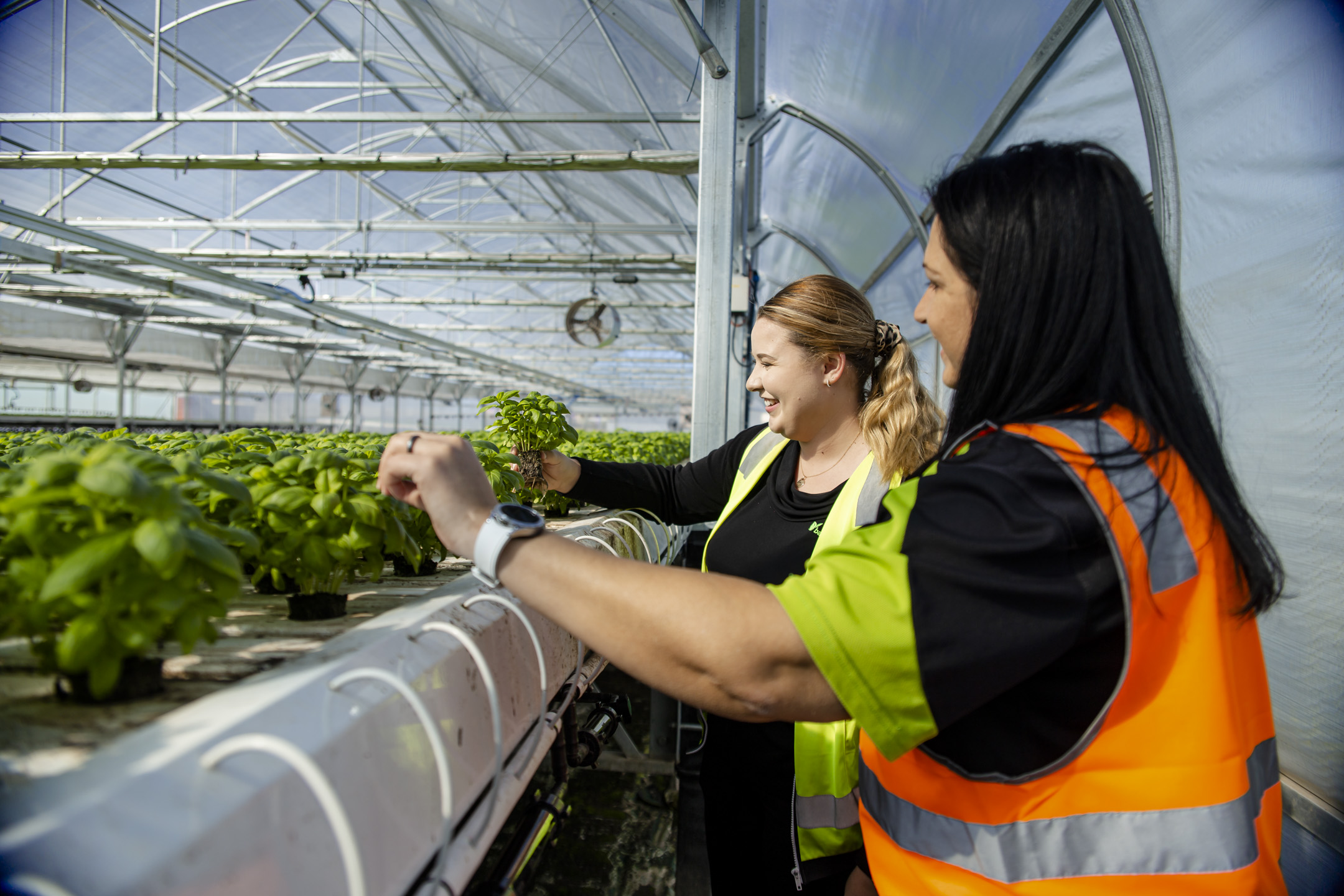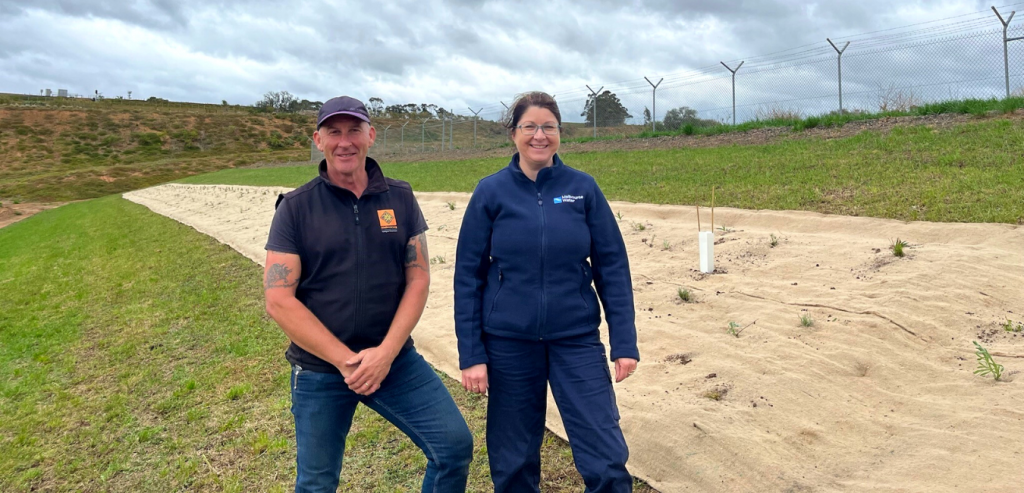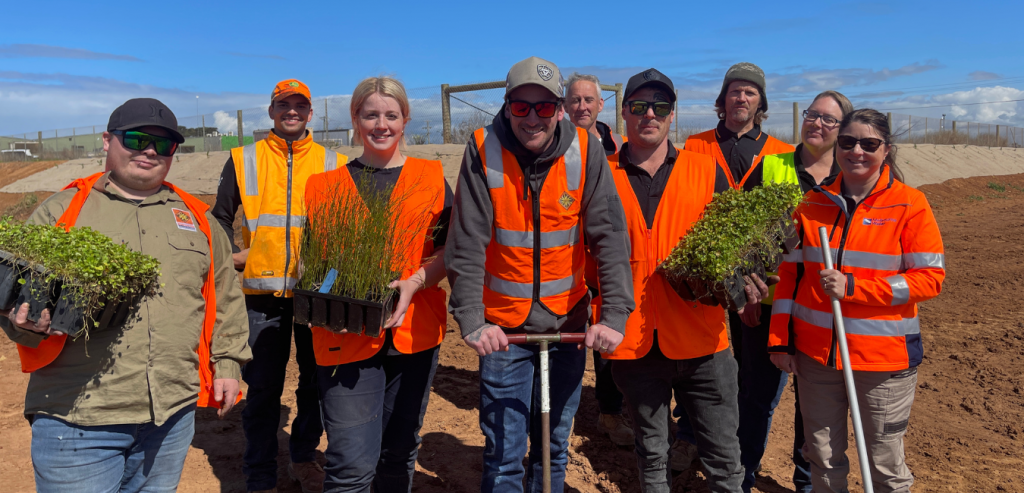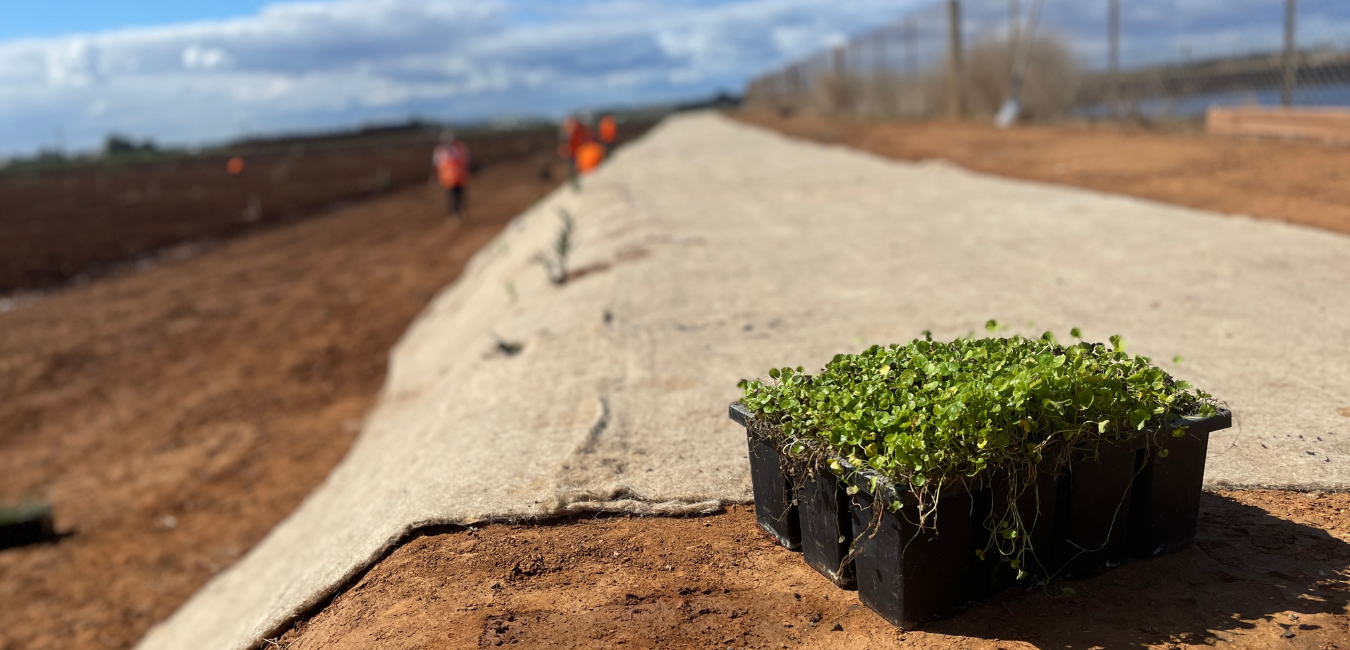
AUSVEG launches new video series: ‘Unpacking the Vegetable Industry’ – understanding the vegetable supply chain
13 September 2022
Brad Ipsen: Delivering long-term, sustainable solutions to preserve freshness in broccoli
26 September 2022The beginning of spring has seen the planting of two new Native Vegetation Insectaries (NVI) trials on vegetable farms in Victoria’s western region – one at Boratto Farms in Bacchus Marsh, and one at Fresh Select in Werribee South.
The goal of on-farm insectaries is to enhance diversity and abundance of beneficial insects on-farm to build resilience, particularly against seasonal variations and pest incursions.
A selection of native flowering seedlings planted at both locations will, once established, provide a source of nectar to attract beneficial insects.
The plants selected are suitable for vegetable farms, as they are low maintenance, provide additional benefits such as erosion control, and reduce sediment moving into local waterways.
Species planted this month, include Brachyscome paludicola (basalt daisy), Calocephalus citreus (Lemon beauty heads), Myoporum viscosum (sticky boobialla), Dichondra repens (kidneyweed) and Carprobrotus rossii (pigface).

Greg Belden (Wadawurrung Traditional Owners Aboriginal Corporation) and Karen Thomas (Melbourne Water) in front of a newly planted NVI trial at Boratto Farms in Bacchus Marsh.
Last year, several NVI trial sites were planted in Werribee South and a major learning from these early trials has been the importance of weed management during the establishment phase of an NVI.
Both new plantings in 2022 include a change to the original weed management approach, incorporating a jute weed matting to reduce weed incursion as the native plants become established.
The laying of the jute matting and the planting of the native seedlings can completed by the Wadawurrung Traditional Owners Aboriginal Corporation (WTOAC), which is training up its Natural Resource Management (NRM) crews to build skills in land management, including weed control and re-vegetation.
Linear plantings installed by WTOAC NRM crews at Fresh Select and Boratto Farms were ideal for sharing local plant knowledge and practicing new techniques for weed management and planting for multi-purpose biodiversity and production benefits.

Wadawurrung Traditional Owners Aboriginal Corporation NVI planting crew at Fresh Select in Werribee South.
On-farm insectaries are areas of flowering plants that attract and maintain beneficial insect populations by providing them with a source of shelter and alternative food sources, particularly pollen and nectar.
This is aligned with one of the focus areas of the VegNET (North, West and South-East regions) project, and the trials aim to test and showcase the multiple benefits that NVIs can provide to vegetable growers.
For more information, please contact VegNET – Victoria (North, West and South-East regions) Regional Development Officer Danielle Park on (03) 9882 0277 or email danielle.park@ausveg.com.au.

